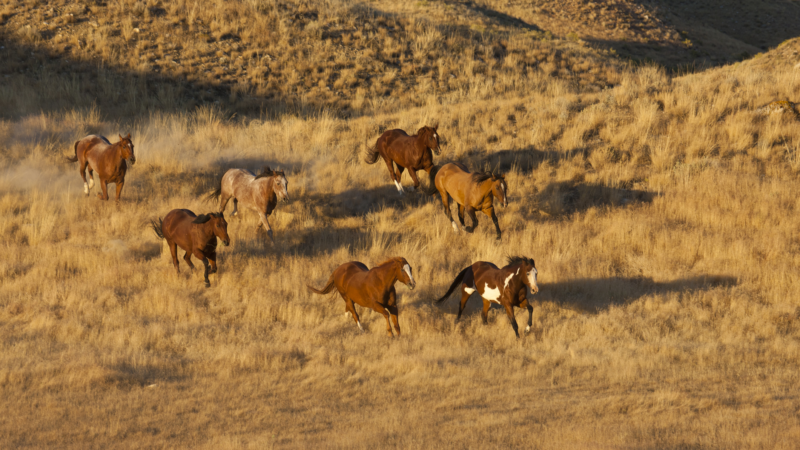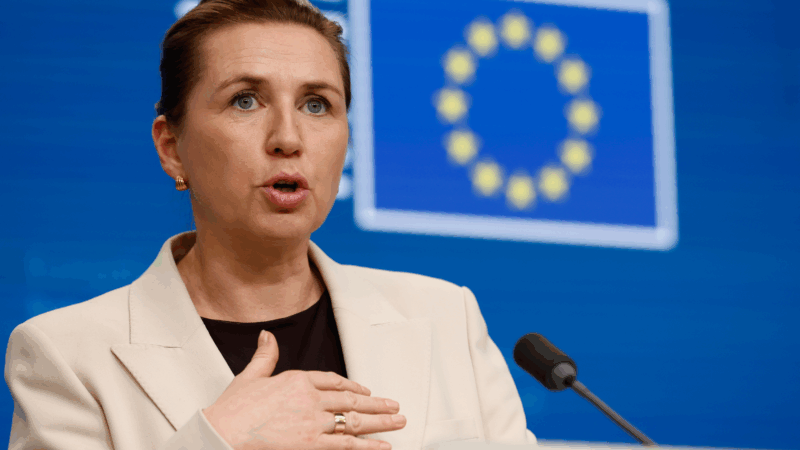The unique genetic change that turned horses into athletic powerhouses
Gianni Castiglione did not set out to study horses.
The Vanderbilt University biologist and his colleagues were interested in how different animal species balance the need to produce energy with the harmful byproducts of that production.
“To make energy, we’ve made a deal with the devil to, basically, have a slow burning fire in our cells,” he said. That fire essentially burns oxygen to create energy. But that kicks up a lot of smoke, or oxidative stress, that can harm cells.
Horses, it turns out, have evolved an unusual way of regulating this tradeoff that allows them to produce more energy without incurring more cellular damage, researchers report in the journal Science. Those genetic changes may, in part, explain how horses became such powerful athletes, able to outrun and outlast virtually all other animals.
“Horses can make this fire burn even hotter and make the damage even less than it would be in a species like a human,” said Castiglione.
The changes occurred in a key gene pathway called NRF2/KEAP1. The pathway senses the buildup of oxidative stress and then kickstarts antioxidant production, which can clean it up, said Castiglione. “This is essentially the energy production and fire department, all wrapped in one.”
Castiglione and his colleagues were scanning the genomes of nearly 200 mammalian species looking for unusual variants in this pathway. Horses stuck out with a single, highly unusual mutation.
“It’s a type of mutation called a nonsense mutation,” he said. “That’s because it breaks a gene, it inactivates it from doing what the cell needs it to do.” It basically put a stop sign, called a stop codon, toward the beginning of the KEAP1 gene. Stop codons generally signal where a gene ends, so having one at the start would “break” the gene.
This mutation kills mice, probably because it allows too much “smoke” to build up in cells. So Castiglione was stumped. “We thought, wow, how are horses dealing with this?”
Through a variety of genomic and molecular techniques, the researchers found an answer.
“Horses have evolved a very intricate strategy for working around this stop codon,” said Elia Duh, a study co-author and molecular biologist at Johns Hopkins University. Essentially, a suite of mutations allows them to ignore the stop sign, making the gene work, but in a slightly different way that ends up benefiting the horses.
The researchers found that these mutations, which arose in the ancestors of all modern horses, allow their muscle cells to produce up to five times more energy than mouse cells, while simultaneously ramping up their damage-control system by 200%.
“This provides them with the biochemical means to run fast and over long distances,” said Duh. This ultimately helps them become aerobic powerhouses.
“I really love this paper,” said Samantha Brooks, a horse genetics researcher at the University of Florida. The mutation, she said, “should have caused a catastrophic loss of function for this protein. But instead, the ancestors of these species somehow managed to really turn that lemon into lemonade.”
The way they made lemonade — ignoring a stop codon — has only previously been reported in viruses, the researchers say.
This adaptation could have implications for human health. Many inherited diseases, like cystic fibrosis and muscular dystrophy, stem from stop codons arising in important genes. If researchers can better understand how horses manage to ignore such stop codons, said Duh, perhaps they could develop gene therapies that do just that in humans, too.
European leaders warn Trump’s Greenland tariffs threaten ‘dangerous downward spiral’
In a joint statement, leaders of eight countries said they stand in "full solidarity" with Denmark and Greenland. Denmark's Prime Minister Mette Frederiksen added: "Europe will not be blackmailed."
Syrian government announces a ceasefire with the Kurdish-led Syrian Democratic Forces
Syria's new leaders, since toppling Bashar Assad in December 2024, have struggled to assert their full authority over the war-torn country.
U.S. military troops on standby for possible deployment to Minnesota
The move comes after President Trump again threatened to invoke the Insurrection Act to control ongoing protests over the immigration enforcement surge in Minneapolis.
Martin Luther King Jr. had a dream … about health care
A doctor from Nigeria tells what Martin Luther King Jr. taught him about health, Justice and inequality.
Sunday Puzzle: It takes two
Ilyse Levine-Kanji of Westborough, Massachusetts plays the puzzle with Weekend Edition Puzzlemaster Will Shortz and host Ayesha Rascoe.
Venezuela: Maduro’s enforcer Cabello still central to power
The ousting of Venezuela's president raised hopes of change — but the politician now controlling the streets shows how little has really shifted.








